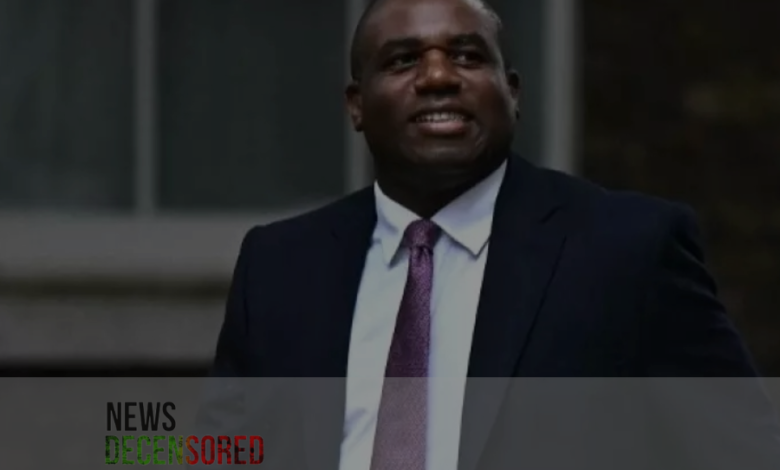UK: Labour to Drop ICC Challenge Over Netanyahu’s Arrest Warrant

The new Labour government in the UK is expected to discontinue efforts to delay the International Criminal Court’s (ICC) decision on whether to issue an arrest warrant against Israeli Prime Minister Benjamin Netanyahu. This development follows accusations last week against the previous Conservative government of attempting to obstruct the prosecution of alleged Israeli war crimes.
With a change in the general election of the United Kingdom on July 5th, Keir Starmer’s Labour Party secured major wins by changing policy stances.
Late in May, the ICC prosecutor Karim Khan lodged requests for arrest warrants for Prime Minister of Israel Benjamin Netanyahu, and the Minister of Defence Yoav Gallant; heads of Hamas, Yahya Sinwar and Ismail Haniyeh, as well as Mohammed Deif on the allegations of war crimes.
Thus, on 10 June, the United Kingdom, an ICC member state, claimed it must submit some written information that the Palestinian authorities have no jurisdiction over Israeli citizens under the existing agreements and cannot, therefore, transfer jurisdiction to the ICC. However, on June 27, ICC judges decided that the UK could make legal opinions and set a limit of July 12 for that.
Labour officials have since stated that the new government understands that the ICC has jurisdiction over Gaza, which explains why the break in the ICC’s ruling on the arrest warrants will not occur again.
Political Shifts and Diplomatic Engagements
Keir Starmer, the current prime minister, has not been negligent in foreign relations. On Sunday, Downing stated that Starmer had a call with Netanyahu; he is willing to strengthen the friendly relations between the UK and Israel and call for an end to the actions in Gaza. The same day, Starmer contacted Palestinian Authority President Mahmoud Abbas, stressing the need for a cease-fire, hostage release and evacuation, and more humanitarian aid and funding to the Palestinian Authority.
Labour’s Stance on Palestinian Statehood
Labour’s position on the conflict has shifted over time, with the recent change in response to frequent criticism and disapproval of its perceived position for the Labour Party during the Gaza conflict by Israelis. First of all, Labour demanded ‘permanently endless stoppage of fighting’ referring to this, instead of the ceasefire at first Starmer seemed to approve of the Israeli decision to supply no supplies to Gaza, a war crime according to legal advisers. Labour then softened its tone on this by denying that Starmer endorsed a total blockade of Gaza.
According to the excerpts from the Labour manifesto, it explicitly states, ” Palestine is a sovereign state and the Palestinian people’s right that does not depend on any neighbour and is a precondition for the long-term security of Israel. Labour Party is firm in the recognition of a Palestinian state as a contribution to the efforts of a new peace process to lead to the establishment of two states, safe for Israel and viable and sovereign for the Palestinian people.
This position is diametrically opposite to the eliminating position of the Liberal Democrats and the Scottish National Party, who called for instant Palestinian state recognition.
Nonetheless, the Labour Party enjoyed a triumphant hitch in the 2017 elections, which was a Thumps down. However, it lost a considerable number of votes to candidates who held pro-Palestinian agendas, some of whom won the polls.
Labour has also disclosed plans to increase cooperation with Gulf states. On the same day, David Lammy, then Britain’s Foreign Secretary, spoke with UAE’s Foreign Minister Sheikh Abdullah bin Zayed. The next day, Starmer endorsed with the UAE President Sheikh Mohammed bin Zayed to enhance diplomacy on trade, investment, defence, and cybersecurity.
Therefore, this means that Labour’s stand on the relationship between nations and the protection of international human rights will be keenly observed, especially concerning the Middle East, the Israeli-Palestinian conflict, and geopolitics.




